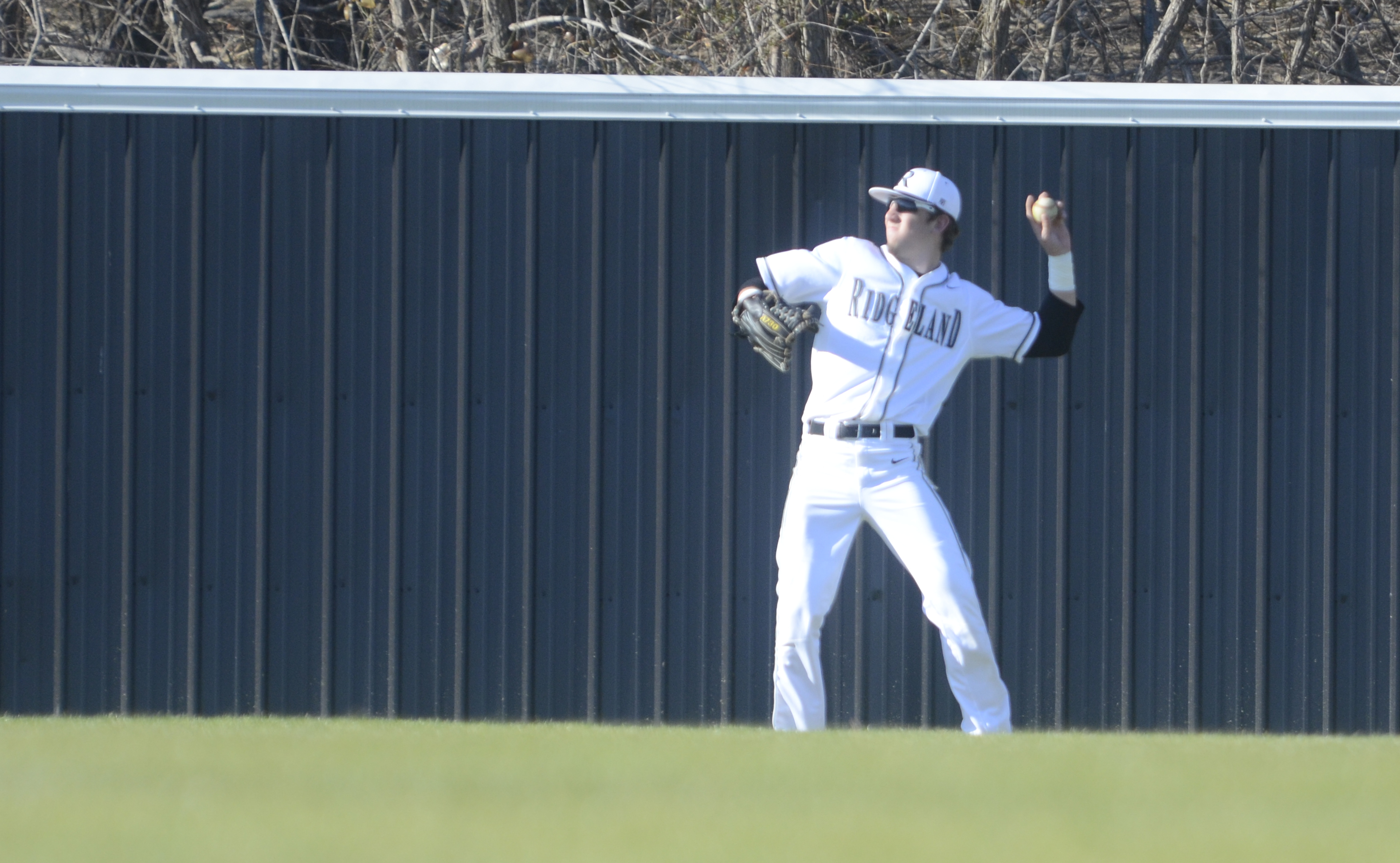Tucker Hill knows in a few weeks he will likely play the last baseball game of his career. Thousands of high school athletes come to that realization at some point their senior years, but for Hill, a senior outfielder at Ridgeland, that final game will represent one more reason why the love of a sport can transform a life.
In his first varsity start, just over two years ago, he made a dive for a ball and tore the labrum in his right shoulder. Surgery eventually was needed, costing him the season and leading to months of physical therapy. The shoulder never felt right during his junior season, and diving for another ball at midseason, he reinjured it enough to be limited to designated hitting.
Another offseason of physical therapy followed, but on the first day of tryouts this season Hill was faced with a decision that somewhere in his mind he knew was a real possibility.
"I threw one ball to second base and my shoulder popped," Hill recalled. "I just kind of looked up and it hit me: You've got one shot to play your senior season."
Hill sprinted to the locker room, grabbed a left-hander's glove, took a deep breath and went back to the outfield -- this time to right field -- and asked for another ball. What happened next changed his life.
"He had tried to throw that one ball right-handed, and it was awful," Ridgeland coach Scott Harden said. "When he ran off the field we all looked at each other and thought he was finished. But he comes back out and we hit him one, and he throws it on a line from the warning track to third base.
"All I could say was, 'You're a lefty now.'"
Hill had always, as he put it, clowned around throwing left-handed, but while that part came naturally to him the rest of playing as a left-handed outfielder was new and awkward. Again, he had a choice: Either work overtime to teach his body how to be left-handed or be prepared to DH again.
"I wasn't comfortable catching with my right hand, which is why I hadn't tried it before," said Hill, who worked several nights long after practice. "The hardest thing that's really messed with my head was trying to figure out how to crow-hop. I knew the mechanics, but getting my brain and body to work together took time.
"Baseball had meant so much to me that I wasn't ready to give it up, so I worked until I could do it. To think that it could be over ... I needed baseball."
It was on one of those long nights, after he had taken a couple hundred fly balls, that peace came over the 6-foot-2, 180-pounder.
"For some reason I just felt I could do it," Hill said. "It was a great relief. It took two years to finally get to the point where I wasn't worried about hurting myself again."
Lisa Carruth has witnessed Hill's triumph. The licensed physical therapist was there when he first injured the shoulder and has worked with him since. She believes his determination has left an indelible mark on anyone connected with the Ridgeland program.
"I saw a lot of determination and motivation to do what he had to do to get back and play the game he loved," Carruth said. "It's pretty amazing to me that he's been able to do what he's done and be functional athletically this quickly. It shows you how much he loves the game."
The past two years also may have led Hill to his professional calling. He plans to attend Georgia Southern and major in athletic training. Though his final game may be soon, Hill has no intention of leaving the game.
"This whole thing has inspired me to get into the training field," he said. "I learned a lot because I got to see it from the diagnostic part to surgery to therapy. It's really cool in that I can stay with the game I love and help other people. Without the injury I doubt this would be happening."
A good story isn't Hill's only legacy to Ridgeland. Having heard the story of an Ooltewah student who collapsed in 2012 and survived in large part due to the presence of a defibrillator, Hill used his senior project to raise money so Ridgeland could be better equipped in a similar situation.
"We had one of the AEDs (automated external defibrillator), but we now have three because of Tucker's work," Harden said. "That's just the kind of kid he is -- a natural leader who can do anything he sets his mind to."
Contact Lindsey Young at lyoung@timesfreepress.com or at 423-757-6296.

